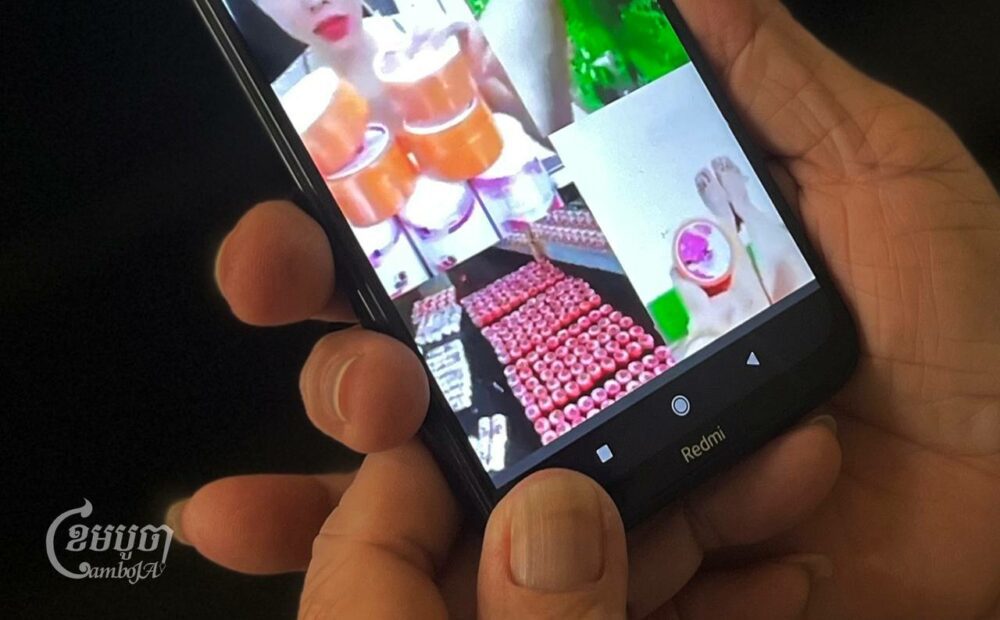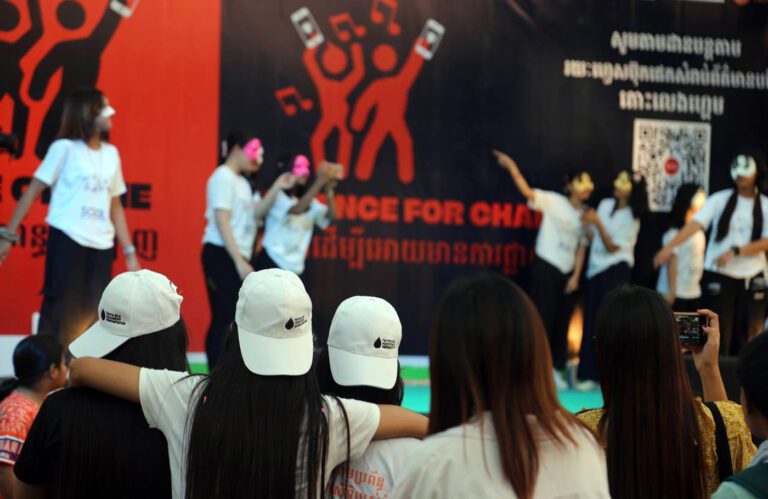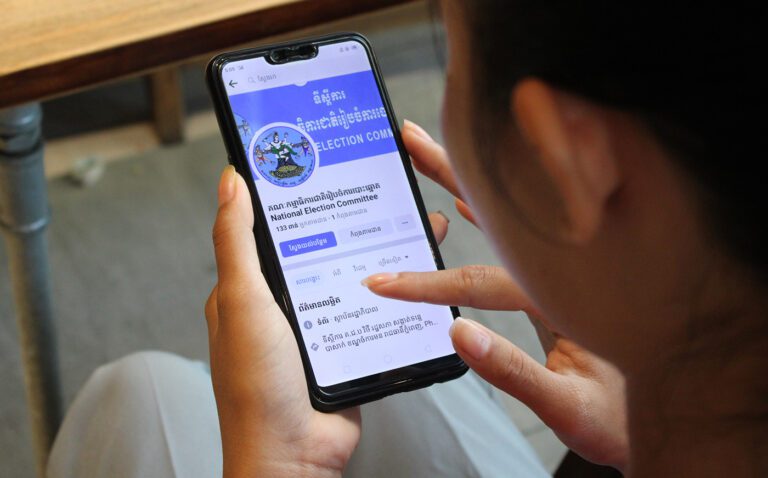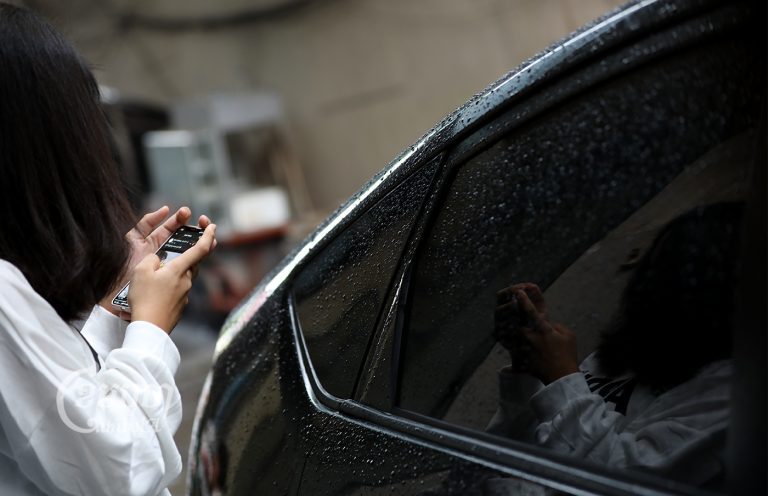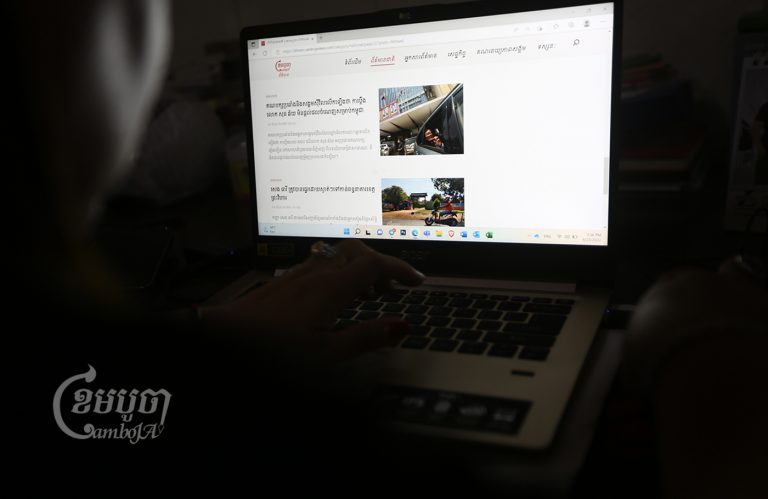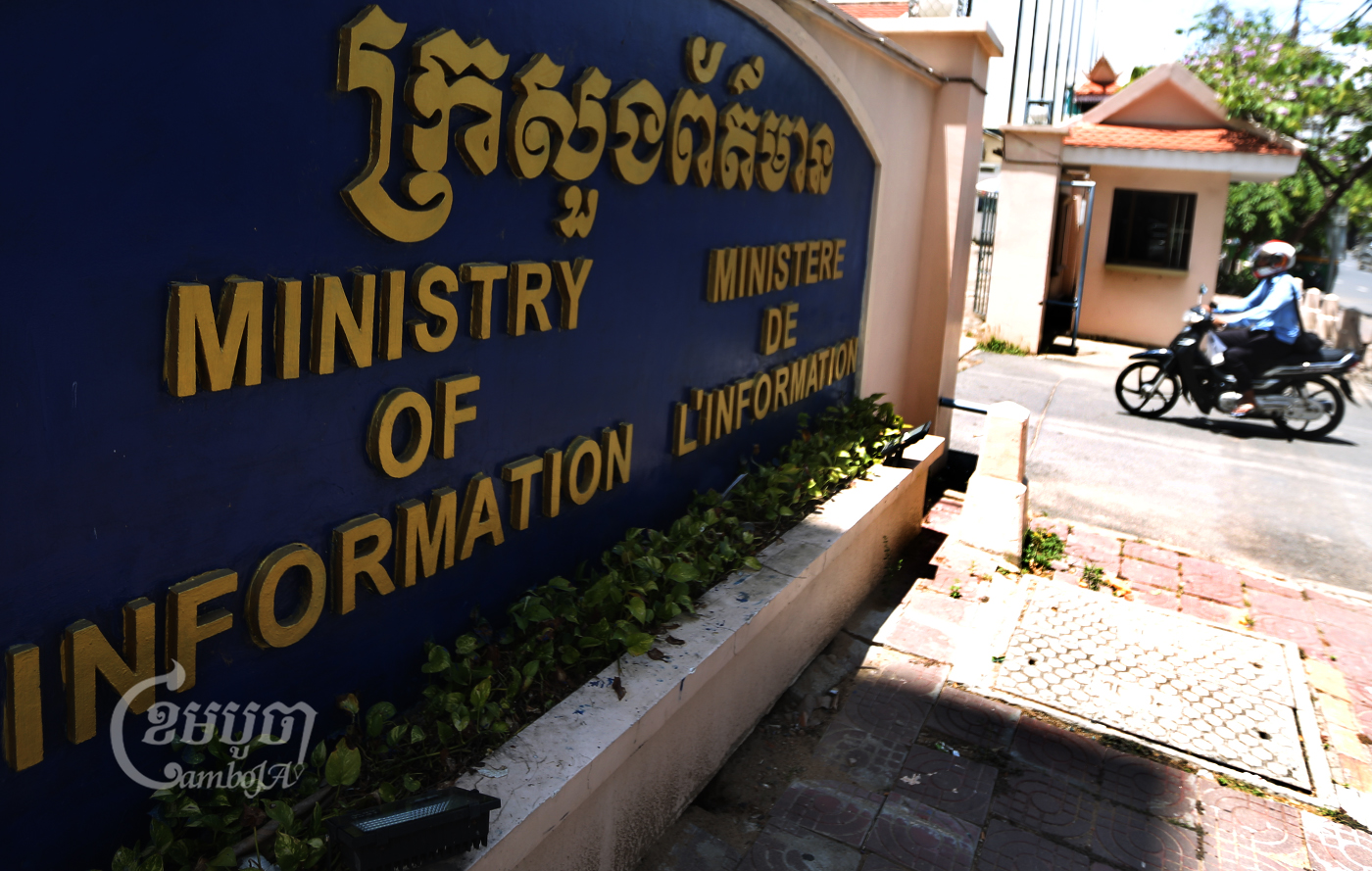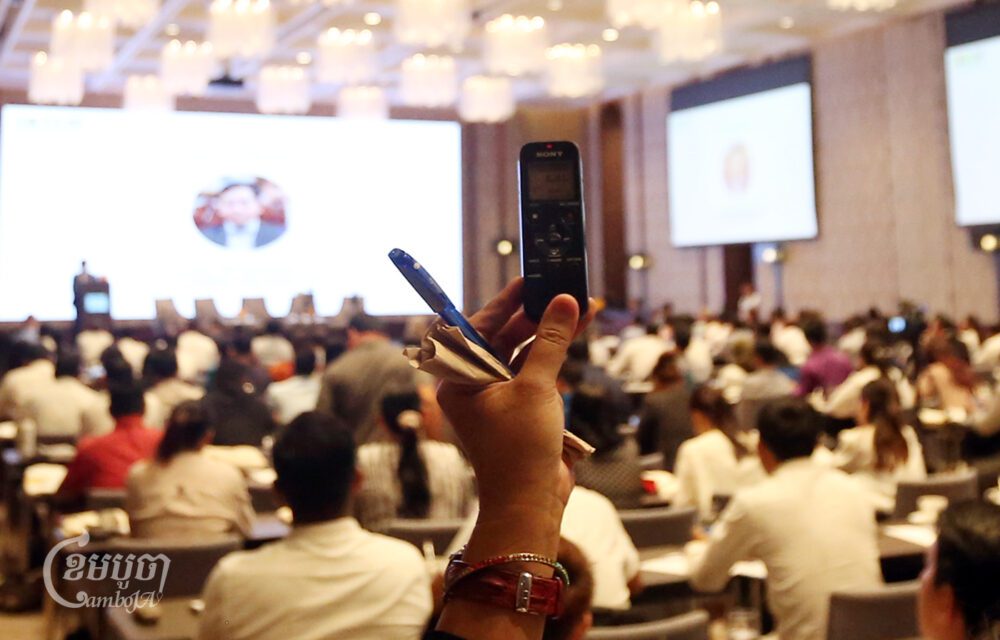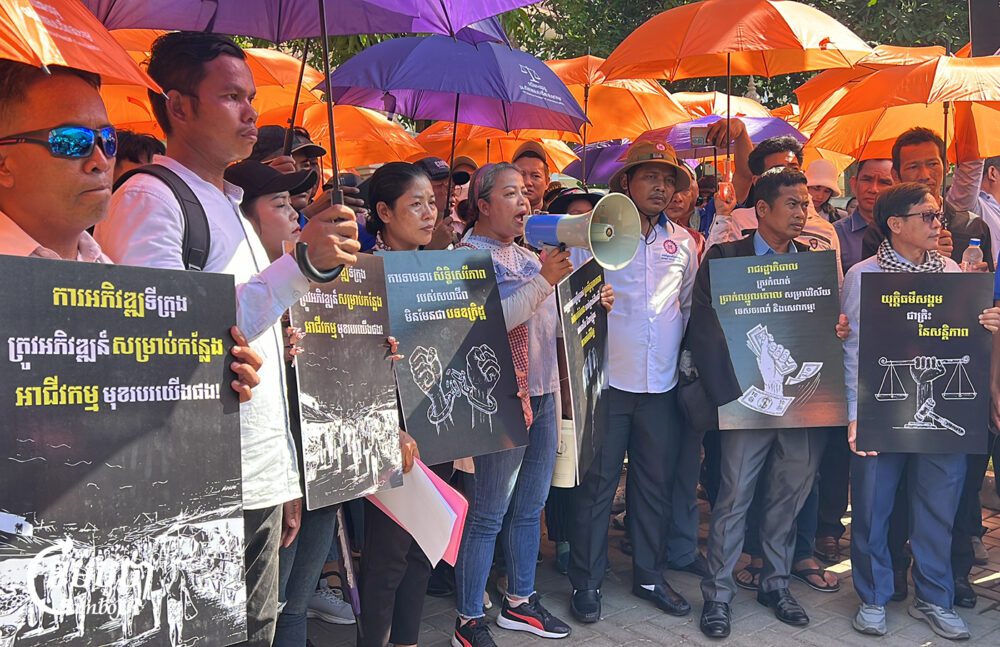The online beauty industry in Cambodia has grown significantly in recent years, with the growing popularity of K-beauty trends and online shopping. Sales of these products online nearly quadrupled between 2015 and 2022, with a projected $150 billion in sales by 2027, according to a McKinsey report.
The beauty market includes cosmetics, skin care products and fragrances, as well as tools and accessories such as sponges and brushes. Online salespeople, who are primarily women, offer consumers a vast selection of beauty products at competitive prices, with the added convenience of home delivery.
But in this vibrant world of online beauty commerce, female Cambodian sellers often find themselves entangled in a complex dynamic as both endorsers and consumers of unhealthy beauty standards.
The interplay between personal aspirations and societal pressures shape the choices of these saleswomen. The impact of their dual role is profound, not only influencing the perceptions and self esteem of their customer base but also affecting the wellbeing of the sellers themselves.
The Impact on Online Shoppers
Women are exposed to feminine beauty ideals, which evolve over time and differ across cultures, from an early age, shaping their perception of what it means to be physically attractive. These expectations can result in intense pressure for women.
For women in Cambodia, ideal beauty standards often consist of light skin, a slim body, a full chest, soft skin, a sharp nose, an oval or V-shaped facial structure, two-layer eyelashes, white teeth, and long, smooth, straight hair. The online beauty businesses run by female sellers often feed into these standards.
Sellers of whitening products, for instance, frequently communicate the profound benefits of their products, including skin lightening, softness, and promises of an unmistakable glow, all while assuring the utmost safety and expedited results. These saleswomen tout the use of authentic formulas sourced from Korea or Japan, and showcase the supposed transformative effects of achieving fair skin.
The global market for skin lightening in 2020 was an estimated $8 billion, with the Asia-Pacific market making up over half of revenue from skin whitening products in 2018. Cambodian consumers, primarily women, opt for whitening products as they strive to meet societal standards, as lighter skin is associated with power, wealth and social status.

A 27-year-old Phnom Penh resident told VOA that before she used skin lightening products she felt “very upset with my tanned skin,” saying her skin was “not beautiful, so I was not happy with it.” This type of dissatisfaction stems from the notion that individuals with tanned skin have toiled under the sun, engaging in arduous labor such as farming or manual work. The Khmer term khmeng sre or countryside child is used as a pejorative, indicating that someone is poor, has darker skin and has worked outside in the sun.
By selling and promoting these beauty products online, these sellers are perpetuating and upholding society’s idealized and classist standards of beauty, harming the women who diligently aspire to meet such ideals.
Selling the Unattainable
As these entrepreneurs navigate their own journeys within the beauty landscape, they also internalize these unattainable ideals. The sellers are influenced by societal pressures and media portrayals that emphasize narrow definitions of attractiveness. This in turn shapes their choices as sellers, driving them to sell skin-whitening products and weight-loss solutions that align with prevailing beauty ideals, perpetuating a cycle that normalizes and reinforces specific physical attributes.
For instance, E Riya of Kampong Speu, who ran a business selling multicolored creams, serum injections and slimming pills on Facebook, told VOD that she personally used whitening creams for three months and recognized the business potential in selling cosmetics. As a result, she opened the online business, selling a range of beauty products sourced from another seller.
“I explain to the customers how to use the products, like after they take a shower they should use the lotion. It will help remove old cells for new cells. And then white skin,” she told the publication in 2022.
Riya illustrates the way in which sellers perform the dual role of consumer and endorser of certain unhealthy beauty standards, such as skin whitening. Balancing these roles may lead to internal conflicts as these sellers grapple with the impact of the standards they are perpetuating. The pressure to conform to these standards may take a toll on the mental and physical wellbeing of the sellers themselves, as they navigate the expectations placed upon them by both their customers and the beauty industry at large.
A UK Parliament report found that 80% of survey respondents agreed or strongly agreed that their body image was detrimental to their mental health. Around 61% of those surveyed said their body image had a negative effect on their physical health. Similar impacts can also be seen in Cambodian society. A staff member of a women’s clothing store, for instance, recounted the negative feelings she has about her body in a Focus Cambodia article from 2020.
“Sometimes I feel self-pity because I wasn’t born with a sharp nose or light skin complexion,” she said. “My friends always joke and mock me about my big nose, making me feel ashamed and think of getting plastic surgery.”
The constant pressure to conform to these ideals can result in heightened stress, anxiety and dissatisfaction with one’s appearance. The sellers become unwitting participants in a system that not only affects their customers but also takes a toll on their own mental and physical health.
Navigating a Thorny Position
Ultimately, this dual role as consumer and endorser of idealized beauty standards places Cambodian female beauty product sellers in a difficult position, inadvertently contributing to the very standards that may adversely affect their own wellbeing.
In addressing the problems of the online beauty industry, it is essential for Cambodian society to embrace and celebrate diversity, challenge unrealistic beauty norms and prioritize mental health support to foster a healthier and more inclusive environment.
Cambodian social media influencers should take part in promoting and encouraging open conversations about self esteem, body positivity and mental health. They should be encouraged to help develop networks that can serve as safe spaces for individuals to share their experiences and challenges, fostering a sense of belonging.
The Cambodian public should think carefully and clearly about what we expect from this industry, in terms of both safety and messaging. One important step would be to encourage the development and implementation of corporate social responsibility guidelines for online businesses, particularly those in the beauty and fashion industries. The entrepreneurs in these burgeoning industries should be encouraged to take a proactive role in promoting diversity and inclusivity of various appearances and body types through responsible advertising.
Moreover, the Cambodian government can support initiatives which promote diversity, challenge harmful beauty norms and prioritizes mental wellbeing. The government could provide incentives for businesses that actively contribute to creating a more inclusive and mentally healthy society, including tax incentives, recognition programs or partnerships with government agencies.
Cambodian consumers have a role to play as well. Ultimately, sellers respond to market forces, and we as consumers have the power to vote with our wallets. Cambodian shoppers should support online beauty businesses whose messages are more positive, and discourage unrealistic beauty expectations.
As the online sales industry grows, particularly the portion of it that revolves around beauty, Cambodia should take significant strides towards fostering a healthier and more inclusive online environment that embraces diversity, challenges harmful beauty norms and prioritizes mental health.
Theang Soriya is a junior research fellow at Future Forum.


